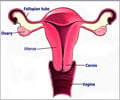Concerns have been raised about the safety and health of sex worked even as raids on brothels and tough action in parts of London hosting the Olympics continue.

Strict bail conditions and threats of anti-social behaviour orders have sent many of the women underground, forcing them away from areas they know well and disrupting contact with workers monitoring their health.
"If people suddenly believe they have seen the error of their ways and are now in regular employment as a result, I think we're fooling ourselves," the Independent quoted Andrew Boff, a London Assembly member who wrote a critical report on the policing of sex workers in the capital, as saying.
"A lot of these people's incomes are dependent on this business," he said.
A list compiled by police of more than 80 named street sex workers in the Olympics borough of Tower Hamlets was earlier this year handed to women's groups to gain their help in trying to track them down.
The list includes at least two women who have died and has led to complaints that police were considering a trawl of suspects to try to move anti-social elements from the streets close to Olympic sites.
Police said its work in Tower Hamlets over the past year was in response to complaints from residents, not linked to the Olympics and its work had led to a "significant" drop in the number of sex workers attacked.
However, a number of charities working with the women refused to co-operate with parts of the project amid growing friction between sex workers and the police and concerns over the growing criminalisation of sex workers.
"I think they're looking to round them up before the Olympics start," Rio Villa, the director of U-Turn women's centre which helps women to leave prostitution, said.
"They're trying to find as many as they can to impose bail conditions or get them to sign anti-social behaviour contracts to keep them off the streets," Villa said.
Working women are so worried by the crackdown that one campaigning group, the English Collective of Prostitutes, has published a legal guide for women in the event of arrest, brothel raids or having money seized during a search.
The police activity is just the latest sign of a tougher approach against prostitution going back two years.
Some of the most rigorous police action has been in the London borough of Newham where six women were "named and shamed" on a police website in 2010 after repeated offences.
There have been more than 80 raids in the past 18 months on brothels in Newham, one of the five Olympic boroughs where the main Olympic park is situated. It has prompted concerns that the safety of sex workers is being compromised.
Scotland Yard's specialist trafficking unit received an extra 500,000 pounds from the Government for work to combat an anticipated increase in the sex trade around the Games.
Police recently confirmed its monitoring work had not identified any increase in trafficking in the five Olympic boroughs, Tower Hamlets, Newham, Greenwich, Waltham Forest and Hackney.
Source-ANI











